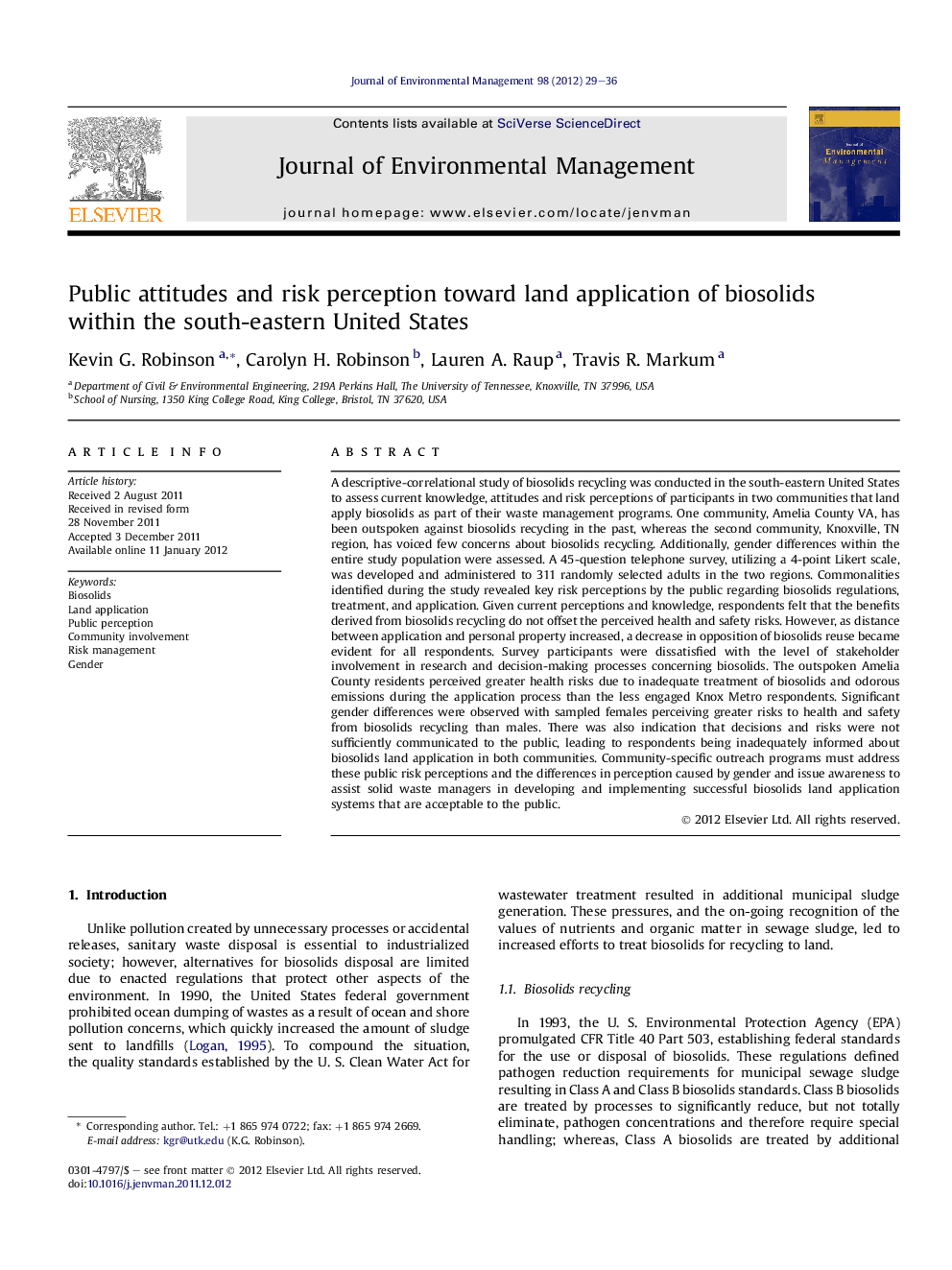| Article ID | Journal | Published Year | Pages | File Type |
|---|---|---|---|---|
| 1056936 | Journal of Environmental Management | 2012 | 8 Pages |
A descriptive-correlational study of biosolids recycling was conducted in the south-eastern United States to assess current knowledge, attitudes and risk perceptions of participants in two communities that land apply biosolids as part of their waste management programs. One community, Amelia County VA, has been outspoken against biosolids recycling in the past, whereas the second community, Knoxville, TN region, has voiced few concerns about biosolids recycling. Additionally, gender differences within the entire study population were assessed. A 45-question telephone survey, utilizing a 4-point Likert scale, was developed and administered to 311 randomly selected adults in the two regions. Commonalities identified during the study revealed key risk perceptions by the public regarding biosolids regulations, treatment, and application. Given current perceptions and knowledge, respondents felt that the benefits derived from biosolids recycling do not offset the perceived health and safety risks. However, as distance between application and personal property increased, a decrease in opposition of biosolids reuse became evident for all respondents. Survey participants were dissatisfied with the level of stakeholder involvement in research and decision-making processes concerning biosolids. The outspoken Amelia County residents perceived greater health risks due to inadequate treatment of biosolids and odorous emissions during the application process than the less engaged Knox Metro respondents. Significant gender differences were observed with sampled females perceiving greater risks to health and safety from biosolids recycling than males. There was also indication that decisions and risks were not sufficiently communicated to the public, leading to respondents being inadequately informed about biosolids land application in both communities. Community-specific outreach programs must address these public risk perceptions and the differences in perception caused by gender and issue awareness to assist solid waste managers in developing and implementing successful biosolids land application systems that are acceptable to the public.
► Extent of issue exposure influences public attitudes toward biosolids recycling. ► Females perceive greater health risks from biosolids recycling than males. ► Successful programs will require more stakeholder involvement in decision-making.
